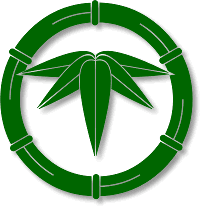Mission
We provide information about Science on Aging and Health, and contribute to the realization of a brightly long-lived society.
Background
The Japan Foundation for Aging and Health contributes to the improvement of people's health and welfare through promotion of the science on aging and health.
Establishment of the Foundation
In December 1989, the government announced the "Ten-Year Strategy to Promote Health Care and Welfare for the Aged." The strategy included the policy to establish and promote "The National Center for Geriatrics and Gerontology" and "The Japan Foundation for Aging and Health," which had been discussed as a part of projects to celebrate the Showa Emperor's long life and his 60-year reign. Accordingly, the Japan Foundation for Aging and Health was established in the same year.
Ten-Year Strategy to Promote Health Care and Welfare for the Aged (abstract):
- Establish the National Center for Geriatrics and Gerontology to develop a research base and establish a foundation to support comprehensive research on aging and health;
- Conduct project researches related to a comprehensive science on aging and health, which has a wide coverage ranging from basic research to the development of prophylactic and therapeutic methods, nursing and caring, and social science research;
- Along with these activities, promote measures to facilitate the healthy birth and growth of children, who will shoulder the future aged society. Also, discuss further development of long-term measures for maternal and child health and medical services, which will provide people with foundation for lifelong health.
Donation by the Emperor
In January 1990, the Foundation received a donation from the Emperor and the Empress Dowager from the legacy of the late Emperor Showa to commemorate the first anniversary of the latter's death. The purpose of the donation was to contribute to the promotion of comprehensive research on aging and health. In April 2001, the Foundation received another donation from the legacy of the late Empress Kojun.
The Foundation feels deeply honored to have received the repeated donations and bears in mind the importance of promoting comprehensive research on aging and health.
History
| Month/Year | Event |
|---|---|
| December 1989 |
The government decided to establish a center and a supporting foundation as part of promotion projects for comprehensive research on aging and health. The Japan Foundation for Aging and Health was established. Inauguration of:
The government formulated the "Ten-Year Strategy to Promote Health Care and Welfare for the Aged" (Gold Plan). |
| January 1990 |
The Foundation received a donation from the Emperor and the Empress Dowager from the legacy of the late Emperor Showa to commemorate the first anniversary of the latter's death. |
| April 1990 |
The establishment of a preparation group for The National Center for Geriatrics and Gerontology was launched. |
| December 1994 |
The government fully reviewed the existing "Ten-Year Strategy to Promote Health Care and Welfare for the Aged" and formulated the "New Gold Plan" for further development of measures for elderly care. |
| June 1995 |
Inauguration of the second chairperson, Takeshi Nagano |
| July 1995 |
The Center for Geriatrics and Gerontology (present National Centre for Geriatrics and Gerontology) opened in Chubu National Hospital. |
| October 1997 |
The headquarters of the Foundation was moved in a Comprehensive Health Science Center located in Aichi Kenkono Mori (The headquarters was transferred to the Tokyo Office). |
| October 1998 |
The 10th anniversary of the Foundation was celebrated. |
| December 1999 |
The government formulated the "Gold Plan 21" for further development of measures for elderly health and welfare. |
| January 2000 |
Inauguration of the second president, Fujio Otani |
| March 2000 |
The Foundation received a donation from the family of the late national icon Kin Narita through the Prime Minister Obuchi. Inauguration of the third chairperson, Hiroshi Okuda |
| April 2001 |
The Foundation received a donation from the Emperor from the legacy of the late Empress Kojun. The government launched the "Medical Frontier Strategy." |
| October 2003 |
Inauguration of the third president, Hidesuke Kobayashi |
| March 2004 |
The National Center for Geriatrics and Gerontology opened under the name, National Center for Advanced and Specialized Medical Care (National Center). |
| April 2005 |
The "Health and Medical Frontier Strategy" was launched. |
| June 2006 |
Inauguration of the forth chairperson, Masaharu Shibata |
| April 2007 |
The "New Health Frontier Strategy" was launched. |
| March 2010 |
Inauguration of the forth president, Itsuro Sobue |
| June 2010 |
Inauguration of the fifth chairperson, Katsuaki Watanabe |
| March 2011 |
The Tokyo Office was integrated to the headquarters. |
| April 2011 |
The organization was transformed to a public interest incorporated foundation. |
Origin of the Mark
The Japan Foundation for Aging and Health was established as a part of projects to celebrate the Showa Emperor's long life and his 60-year reign. We also received a donation from the Emperor and the Empress Dowager from the legacy of the late Emperor Showa to commemorate the first anniversary of the latter's death.The purpose of the donation was to contribute to the promotion of comprehensive research on aging and health.
In order to reflect these backgrounds, the young bamboo mark of the Foundation was created in 1997 to symbolize an ever-young and fresh mind, based on the fact that the late Emperor Showa's seal used in the Imperial Court was also designed after a young bamboo.

